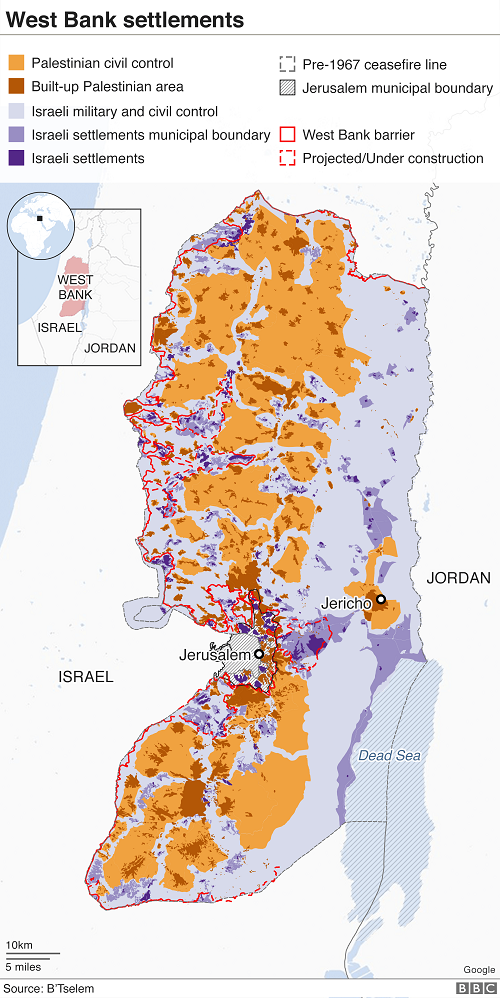U.A.E.’s Muhammad bin Zayed al-Nahyan & Israel’s Benjamin Netanyahu
Last week, Israel and the United Arab Emirates signed an historical deal that normalized relations between the two countries. This marked the first time in decades that a predominantly Arab nation has signed a formal treaty recognizing the existence of the nation of Israel. Though a formal Palestinian-Israeli peace treaty remains elusive for reasons we’ve discussed previously, this marks a significant development in the potential future of the Middle East region. This week, we’ll examine the current state of Arab-Israeli peace, the winners and losers of this current deal, and what it all means for Americans here at home.
But first, what Exactly Happened?
Most nations of the Middle East do not recognize the state of Israel at all. This is a result of several wars, decades of resentment, and the continued treatment of the Palestinian people. Only two other Arab nations have signed peace treaties and recognized Israel in the past. Those were Egypt in 1979, and Jordan in 1994. This non-recognition means that they have no formal diplomatic ties, trade agreements, tourism, or security arrangements. The signing of this deal between the wealthy United Arab Emirates and Israel, called the Abraham Accord, means that each nation will begin discussions on business deals, joint-military cooperation, direct flights, and eventually full diplomatic relations. In short, it allows these nations to conduct all of the usual things that nations do when interacting with other countries. The U.A.E. and Israel had been moving towards a warming of relations in recent years, but the upcoming possibility of a Biden presidency has increased the likelihood of American opposition to Israeli annexation of the West Bank in the future. For those details, let’s look at the winners and losers of this deal.
Green indicates countries that recognize Israel.
The Winners: Israel & the U.A.E.
Of the two countries involved in this peace deal, Israel probably gets the biggest win here. Israel has long sought the recognition of several of the Arabian Peninsula’s most influential nations. Among those are Saudi Arabia and the United Arab Emirates. The U.A.E. is a very wealthy oil-rich nation that has invested heavily around the world. If Israel is able to start making significant connections here, it can make further inroads into other Arabian Gulf nations like Bahrain or Oman. There is speculation that future peace deals could now be much easier to conduct with these nations since the U.A.E. has helped to break the diplomatic stalemate in the region. From a domestic standpoint, this move greatly helps Israel’s beleaguered prime minister Benjamin Netanyahu, who is currently facing corruption charges and has been unable to form a government despite several recent elections.
For the U.A.E., the benefits are more noticeable and less symbolic. The U.A.E. and Israel have a common adversary in Iran. Though they have been moving towards cooperation on national security regarding Iran for awhile, the normalization of relations allows them to work directly and out in the open on this. In addition, the Emirates can now access Israel’s economy and begin major trade and investment with Israel. But there is some symbolic victory for the U.A.E. here as well. As part of this deal, Israel agreed to suspend its plan to annex large sections of the West Bank where many Palestinians still reside. This is a move that has been strongly pushed by the far-right in Israel, but would have been wildly unpopular throughout the entire world (not just in the Arab world). For now, annexation appears to be off the table.
The Losers: The Palestinians
But even though the West Bank won’t be annexed right away, it doesn’t mean the situation for the Palestinians will get much better as a result of this deal. In fact, the deal is mostly a major loss for the Palestinians in their quest to obtain nationhood. Most all Arab nations were waiting on a final peace deal between Israel and the Palestinians as a precondition to their own peace deals. The fact that the U.A.E. has recognized Israel without any deal involving the Palestinians indicates that Arab nations might be abandoning any hope of a Palestinian nation. If more countries continue to view Palestinian nationhood as a lost cause, then their negotiating power becomes almost nonexistent. Without a nation of their own, the Palestinians will continue to be forced out of their homes by Israeli settlement building in the West Bank. And even if the West Bank is ever annexed at a future date, and the whole area is claimed by Israel, it probably won’t mean full Israeli citizenship for the Palestinians still living there. Instead, they will likely be given a lesser status to prevent the Palestinians from obtaining voting rights within Israel. In short, the status of the Palestinian people is beginning to look even more grim, no matter what happens.
The Bottom Line
So what does this all mean for you? Well, it’s possible we could see more Arab nations start to normalize their relations too. Many Arab nations restrict travel within their borders to anyone with an Israeli travel visa, so one benefit of this opening is that travel would be less restricted. But overall, this development probably means a more stable Middle East overall. If more nations sign deals with Israel, it reduces the likelihood of a dramatic escalation in fighting between Israel and the Arab states. Unfortunately, it appears that this relatively stability will come at the cost of the dream of a Palestinian nation. Consequently, the loss of that dream might make the Palestinians even more desperate for a solution, which could fuel another rise in local violence there.



